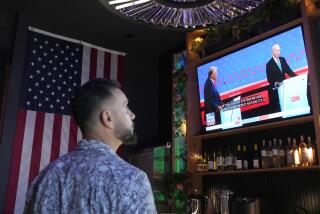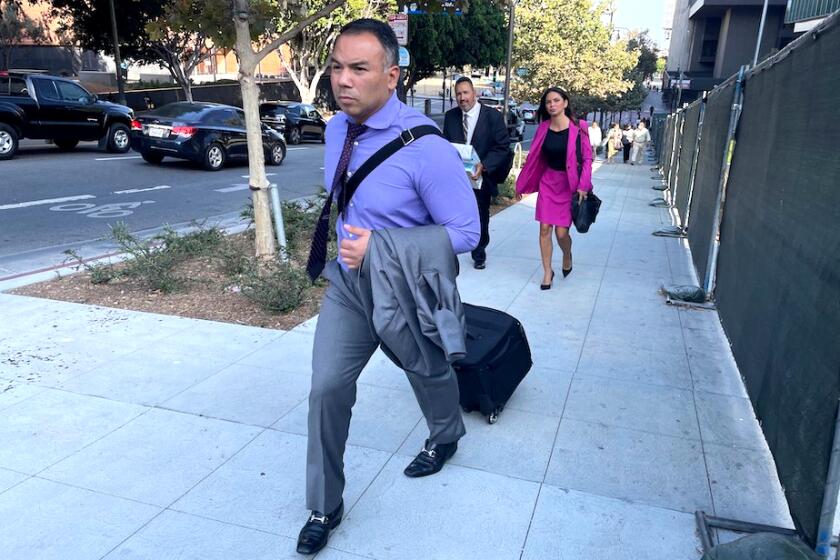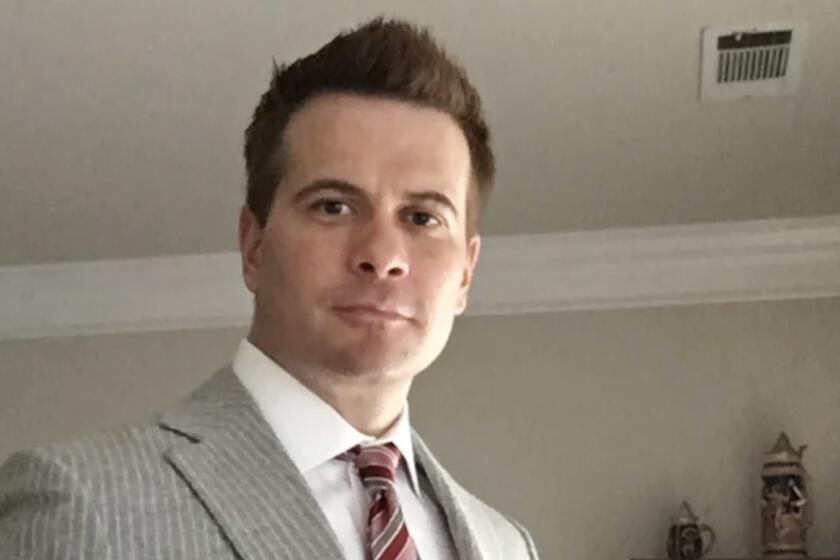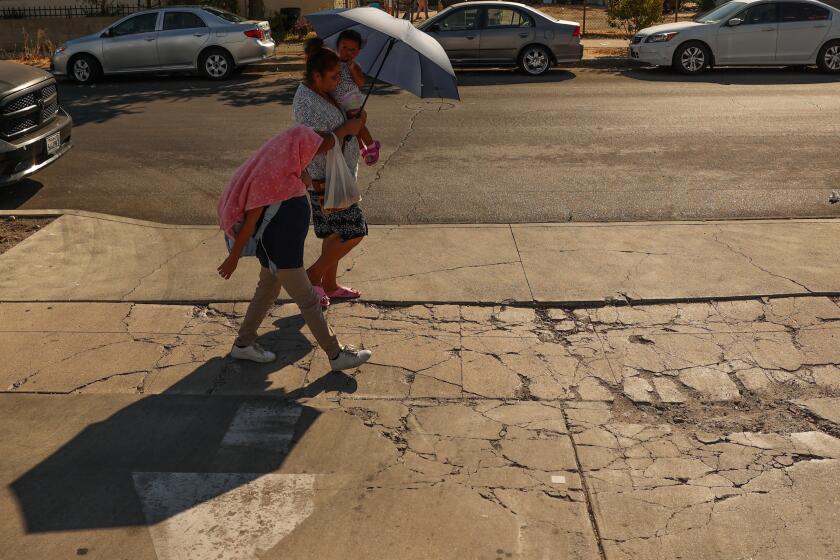Lesbians and gays see a more accepting society
A sweeping new study of gay, lesbian, bisexual and transgender Americans finds that the overwhelming majority believe society has grown more accepting over the last decade — and will continue to do so in the decade to come.
Yet many said they had faced slurs, rejection or worse. Nearly a third said they had been threatened or physically attacked at some time in their life, the Pew Research Center found. Only about one in five said there was a lot of acceptance for LGBT people today.
For LGBT people, “these are the best of times — but that doesn’t mean they are easy times,” said Paul Taylor, executive vice president of the Pew Research Center. “Many are still searching to find a comfortable, secure place in a society where acceptance is growing — but still limited.”
The findings were part of a vast trove of information gathered by Pew in its first such survey, one of the most thorough studies ever done of the LGBT community nationwide.
Interactive Map: Milestones in the fight for gay marriage
The survey delved deeply into the lives and beliefs of gay, lesbian, bisexual and transgender Americans, exploring such topics as when they first thought they might not be straight, how often they go to religious services, what they think about immigrants, and even things as specific as whether they had ever avoided a company for its stand on gay rights. Nearly 1,200 people answered questions online.
Pew found that as Americans await Supreme Court rulings tied to same-sex marriage, 39% of LGBT adults fear the marriage battle has drawn too much attention away from other problems they face. Nearly all supported same-sex marriage and a majority wanted to get married or were already wed, but some felt focus had drifted too much from workplace discrimination, HIV/AIDS prevention and treatment, or other issues.
“There’s clear evidence that people were at least as concerned about employment discrimination as they were about marriage equality,” said Williams Institute scholar Gary J. Gates, who served as an advisor on the study. Deciding what to prioritize is “an ongoing struggle in the LGBT movement.”
Compared with other Americans, the gay community is younger, more liberal, less religious and more educated, Pew found. It is also less happy, with 18% saying they were “very happy” compared with 30% of the general public. Its racial makeup is similar to the country at large.
The biggest group responding to the Pew survey were bisexuals, often overlooked in public discussions about gay and lesbian life.
Bisexuals were much less likely to be out than gay men or lesbians. Just 28% said that all or most of the important people in their lives knew about their sexual orientation, compared with 77% of gay men and 71% of lesbians.
Most bisexuals who were in committed relationships were with someone of the opposite sex, the survey found, one reason bisexuals made up most of the LGBT people who were married.
Other findings from the new survey included:
• Sixty percent of LGBT people surveyed said they were married or wanted to get married, compared with 76% of the general public. Slightly more than half said they had children or wanted to have them.
• Gay men most commonly said they first thought they might not be straight around the age of 10. Lesbians and bisexuals first had that thought around the median age of 13. The median age at which gay men first came out to a close friend or family member was 18. For bisexuals the median age was 20. And for lesbians, it was 21.
• Though the LGBT community is less religious than the general public, 13% said they go to religious services at least weekly. Seventeen percent said they identified with a religion that was very important in their lives. Among those with a religious affiliation, two out of three said there was no conflict between their faith and their sexual orientation.
• Only 12% of gay, lesbian, bisexual or transgender people surveyed said they currently lived somewhere known as an LGBT neighborhood. Fourteen percent said they had lived in one in the past.
• Nearly one out of four respondents said President Obama was the public figure most responsible for advancing gay rights. Second to the president was talk show host Ellen DeGeneres, named by 18%. Smaller percentages named news anchor Anderson Cooper, former Secretary of State Hillary Rodham Clinton, former congressman Barney Frank and actor Neil Patrick Harris.
More to Read
Sign up for Essential California
The most important California stories and recommendations in your inbox every morning.
You may occasionally receive promotional content from the Los Angeles Times.










